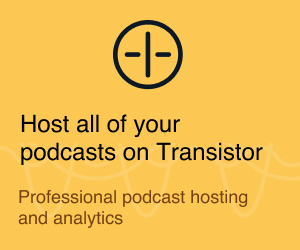Episode details
On this episode Abadesi talks to Courtland Allen. He is a super talented designer and developer. In 2016 he founded Indie Hackers, an awesome community of bootstrappers and makers sharing their stories. Nine months later Stripe acquired the company. Courtland is also a Y Combinator alumnus and an MIT graduate with a degree in Computer Science. In this episode they talk about how to avoid making the most common maker mistakes.
They discuss...
How and why Courtland became an Indie Hacker
“I spent a while following the traditional startup route. I started a startup, I got into Y Combinator, we raised money, but we never really had a business model. Eventually we did charge money for our product, and a couple hundred people signed up right off the bat. I was enchanted by this idea that I don't have to raise money from investors, I don't have to hope that there's some sort of exit opportunity in the future, I could build something and put a price tag on it and sell it to people directly and feasibly pay my rent.”
Courtland explains his path to becoming a self-sufficient bootstrapper. He got his start in the very early days of indie hacking, even before Stripe had launched. He says that it was the Stripe beta that allowed him to go independent.
How to figure out whether you have a good idea on your hands
“A lot of people think a business is an invention. But an invention needs to be this entirely novel thing. A business is more of a process. It doesn’t need to be completely unique. A lot of people get frustrated and blocked by their inability to come up with something that’s completely novel. The number one thing you should do is not put that constraint on yourself.”
He explains how to “sanity check” your idea and runs through the common mistakes he sees people making when they are validating their ideas.
Finding beta testers for your product and what to avoid when bootstrapping
“You’re trying to from no one using your app to five or ten people. You can easily do that. Talk to five relatives or five friends or coworkers. Go online and find people who you think would be good users of your product and send them a heartfelt personalized email. A lot of founders I have talked to have done this non-scalable approach at the beginning.”
Courtland explains why, as a one-person operation, you shouldn’t be copying what big, successful companies are doing. He says that a landing page is not a good way to test your product and instead recommends that you go the old-fashioned route and talk to people about it.
“These companies are doing things that you can’t do, and that you probably shouldn’t do. You’re much smaller. You wouldn’t go to the gym and try to bench press five hundred pounds because the biggest guy in the gym is doing that. One of the most troubling things for early Indie Hackers is the most obvious examples to copy are these big companies who are the worst people to copy.”
How to know whether to go full-time on your idea once demand picks up
“The barometer I use is: Do I like the customers I’m serving? Are the people who are paying for what I’m building people I would want to talk to and be friends with and hang out with? Because that’s what you’re probably going to be doing for the next few years, so you probably don’t want to quit your job and go full-time into something you don’t like working on.”
He provides some excellent advice on launching, dealing with the ups-and-downs of being a maker, and once you’ve made it to a place where you’re getting some traction, how to figure out whether to quit your day job and go full-steam ahead on your side project. He says that he saved up a year’s rent before going full-time on his idea and points out that even when you are full-time on your project, there will always be more to do than you can manage.
We’ll be back next week so be sure to subscribe on Apple Podcasts, Google Podcasts, Spotify, Breaker, Overcast, or wherever you listen to your favorite podcasts.
Companies and Products Mentioned In This Episode
Flippa — The #1 place to buy and sell websites, domains and apps.
Notion — The all-in-one workspace - notes, tasks, wikis, & databases.





Comments (1)
Add new comment
Login to comment
Tayler Freund✌🏽
@tayler_odea
This was also a really good one. He gets really specific which is awesome
Login to comment